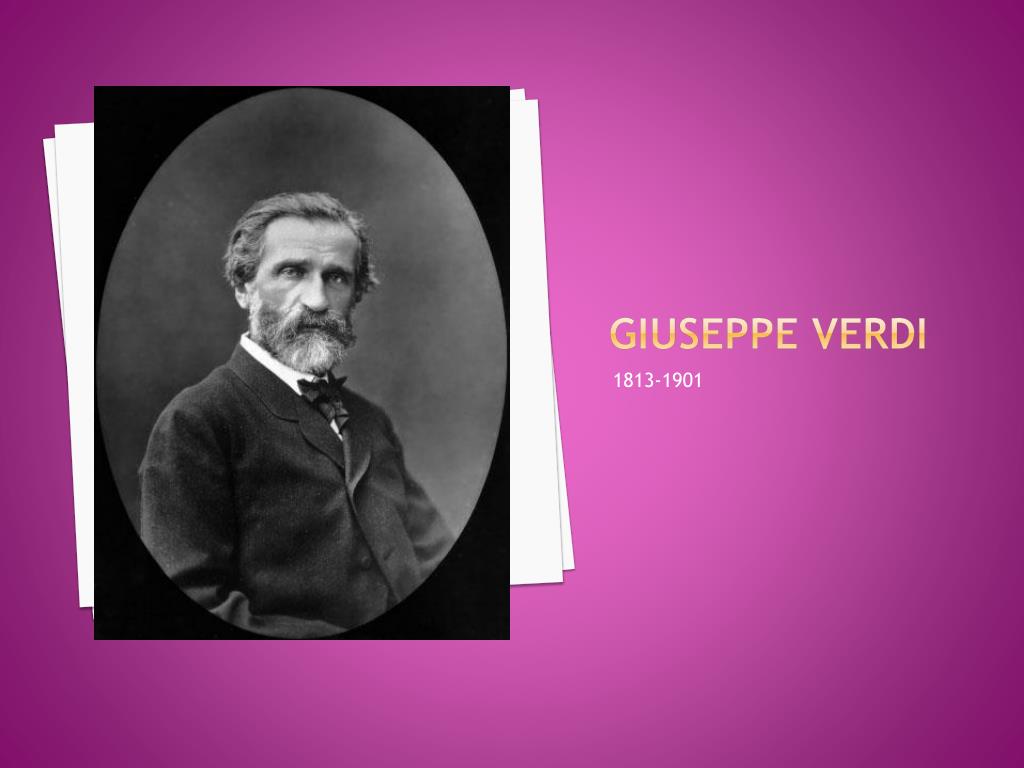
Underrated operas like “Luisa Miller” were overlooked because of his ever-popular trio of “Rigoletto,” “Il Trovatore” and “La Traviata.” The former was revolutionary in Italian opera for its ability to experiment with newer musical forms (the title character’s solo numbers are far from the traditional aria structure). His genius for melody was quite clear from his third opera “Nabucco” and his flair for dramatic experimentation could be seen in his “Macbeth,” just his 10 th opera, written seven years after his very first.Īnd yet, he still had so much more to offer. But some of Verdi’s “lesser” masterpieces were beyond the abilities of most composers throughout the history of opera. He created close to 30 operas over the course of his career, his first being “Oberto (1839)” and his final one being “Falstaff (1893).” Greatest Worksįor most composers, this section is quite easy to fill in with just one or two operas. Verdi’s writing for the voice is so nuanced and complex that he even fathered a style of baritone voice that had never existed previous to his arrival on the operatic scene. Moreover, Verdi’s operas are among the most melodic ever concocted, a major reason for his enduring popularity. They are also quite often complex in their characterizations, giving the world of opera some of the most nuanced works. Verdi’s heroes and heroines are often placed in larger-than-life situations and forced to choose between moral duty and emotional desires. His operas range in style and scope, but there is a consistent artistic vision in Verdi’s oeuvre that can best be characterized by a preoccupation between the person’s role as an individual in a larger context. Verdi wasn’t quite the revolutionary that his contemporary Wagner was, but he did provide a bridge between the era of bel canto and that of verismo opera. He was an ardent student of his craft, working to perfect and develop it over his lengthy career.
#Giuseppe verdi opera how to
9 (or was it 10?), 1813, Verdi would become the textbook example of how to achieve everlasting greatness when you put in the work over the course of your life. Hailed as Verdi’s successor in the 1890s, Giacomo Puccini (1858–1924), brought Italian opera into the twentieth century with his thirteen operas incorporating new elements of the style known as verismo (realism), as well as the exoticism of long-ago-and-far-away settings.Few composers have ever attained the legendary status of the man from Busetto, who created a plethora of operas throughout his career that remain fixtures of the standard repertoire today.īorn on Oct. By the end of the 1840s, Verdi had fundamentally altered the established form and structure of the bel canto style, revolutionizing Italian opera in the process. Rossini and his immediate successors Vincenzo Bellini (1801–1835) and Gaetano Donizetti (1797–1847) are the masters of the Italian bel canto (beautiful singing) style, characterized by elaborate melodic lines, smooth delivery, and purity of tone. Verdi was born into the musical world of Gioachino Rossini (1792–1868), the leading Italian opera composer of the first half of the nineteenth century in terms of popular success and artistic influence.

When he died after a nearly sixty-year career, he was mourned in Italy as a national hero. The central figure in Italian opera for much of the nineteenth century, Giuseppe Verdi (1813–1901) wrote twenty-eight operas, nearly half of which have been staples of the international operatic repertoire since their first productions. Charles Jahant Collection, Music Division, Library of Congress (031.00.00)



Noted Italian baritone Giuseppe de Luca (1876 –1950), as Verdi's Rigoletto.


 0 kommentar(er)
0 kommentar(er)
